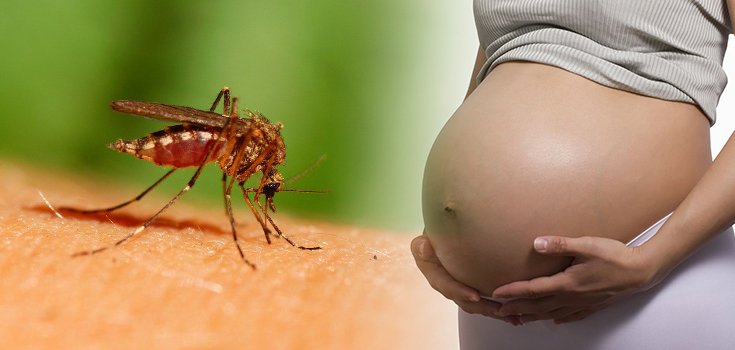Women in El Salvador Told to Delay Pregnancy Until 2018 Due to Zika Virus

The Zika virus is spreading so quickly in Latin America and the Caribbean that health officials in El Salvador are advising women not to become pregnant until at least 2018 to give them a chance to get on top of the crisis.
Other Latin American countries, including Colombia and Ecuador, as well as Jamaica and in the Caribbean, have recommended delaying pregnancy, though for not as long.
Local governments initially believed they were facing a run-of-the-mill health problem, but Zika has become a culture-shaping scourge that has spread throughout at least 20 countries in the region, according to the World Health Organization (WHO).
Zika, which is transmitted by the common Aedes mosquito, has hit Brazil especially hard in recent months, infecting some 1 million people. In the past 4 months, health officials have received reports of nearly 4,000 cases in which the virus may have caused microcephaly, in which babies are born with an abnormally small head and brain, which may have been caused by Zika. [1]
But Brazil has, by far, taken the most drastic steps to prevent further, devastating birth defects.
“The recommendation is that people plan their pregnancies, that they avoid if at all possible to have babies this year,” Deputy Health Minister Eduardo Espinoza said. “This is the first time that we have suffered an attack of Zika virus, and the first attack is always the worst.”
For many in the predominantly Roman Catholic country, the recommendation is morally conflicting, as the church condemns contraception.
“Morality says that people shouldn’t have that control” over procreation, Rev. Hector Figueroa, a priest in charge of health issues in the San Salvador archdiocese, said. “But the church also isn’t going to say something that runs contrary to life and health.”
“This is a very delicate issue,” he said.
Many have criticized the recommendation, noting that many El Salvadoran pregnancies are unplanned. Some say it points to confusion and a lack of planning on the part of the government.
The Salvadorian government has tried to stem the spread of the Zika virus by fumigating mosquito-breeding areas, and launching radio and TV public-service campaigns urging pregnant women to cover as much of their skin as possible to avoid mosquito bites. Others are trying to create genetically modified mosquitoes to reportedly tackle issues like this, but that is another controversial topic. [2]
On Friday, federal health officials added 8 destinations to the list of those to which pregnant women should not travel due to Zika. Barbados, Bolivia, Ecuador, Guadalupe, St. Martin, Guyana and Samoa have been added by the U.S. Centers for Disease Control and Prevention (CDC) to the list that already included Brazil, Colombia, El Salvador, French Guiana, Guatemala, Haiti, Honduras, Martinique, Mexico, Panama, Paraguay, Suriname, Venezuela, and the Commonwealth of Puerto Rico.
It was announced Friday that 3 people in New York had become infected with the Zika virus after traveling to endemic parts of the world and being bitten by Zika-carrying mosquitoes. One person is recovering, and the other two patients recovered without complications.
“There is virtually no risk of acquiring Zika virus in New York State at this time as the virus cannot be spread by casual contact with an infected person and mosquitoes are not active in cold winter months,” state Health Commissioner Howard Zucker said in a statement.
The WHO says there is circumstantial evidence to suggest that the virus is being transmitted in India and may be penetrating deeper into Africa. [3]
It’s likely that Zika will eventually be transmitted in the U.S., because although the virus can’t be spread from person to person, mosquitoes are likely to pick up the infection.
“It’s not if, it’s when,” said Mustapha Debboun, director of the mosquito control division at Harris County Public Health and Environmental Services in Houston.
Dr. Edward McCabe, senior vice president and chief medical officer of the March of Dimes, said he is concerned about how quickly Zika is spreading.
“I think this is concerning. We need to take it seriously,” he said.
“With the recent outbreaks in the Pacific Islands and South America, the number of Zika cases among travelers visiting or returning to the United States will likely increase,” the CDC noted in comments accompanying a global map of Zika virus transmission. “These imported cases may result in local spread of the virus in some areas of the United States,” the agency warned.
How far and wide it will spread is anyone’s guess.
“There’s a good chance we’ll see it this coming summer, given what we saw with chikungunya two years ago,” said Dawn Wesson, an associate professor of tropical medicine at Tulane University School of Public Health and Tropical Medicine, in New Orleans. [4]
Sources:
[3] Newsday
[4] CBS News

There’s been no mention of the millions of GM mosquitoes to fight Dengue released in Brazil last year, 2015 and how its an experiment with unknown consequences. Go search and read GeneWatch UK Oxitec GM breeder. U.S. corporation Intrexon bought Oxitec Aug 2015.
They want to release GM mosquitoes and GM moths in the US too. What could possibly go wrong?
It reminds me of an incident in a Pratchett book. A postman was explaining why someone got attacked by a weasel (or similar) living in a mailbox. – paraphrase from memory:
Well, we found slugs in the mailboxes, and they wouldn’t leave. So we put frogs in the mailboxes to get rid of the slugs. But the frogs took over. So we got snakes to get rid of the frogs, but then the snakes were everywhere, so then we got the weasels. I have to give them credit, though. The slugs found their way in by themselves.